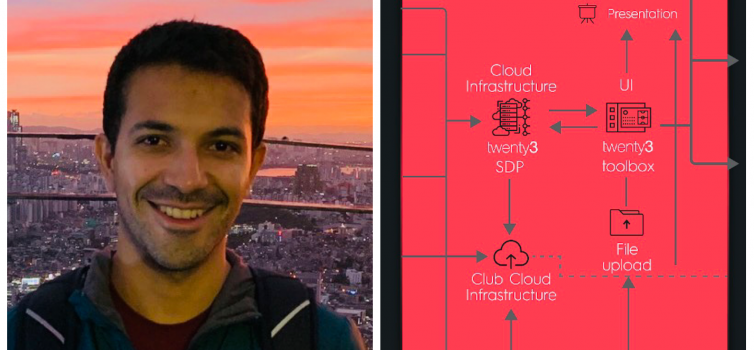David Perdomo Meza: Why clubs need to democratise their use of data

David Perdomo Meza is Head of Engineering and Data Science at Twenty3
Written by David Perdomo Meza — November 22, 2021
WHAT we’ve seen over the last couple of years in football is an explosion in the provision of data.
There are classic event data providers, tracking data providers (including those using broadcast feeds), third-party providers doing things like player ratings, and internal sources of data, such as those collected via wearables or scouting reports.
Staff within clubs - coaches, performance analysts, recruitment analysts and so on - are all trying to do their jobs better by making use of this abundance of data.
The classic set-up at a club used to be to have one person, or a very small team, that consumed everything, taking these sources into their laptops and using them to generate output for other people.
However, as Twenty3 CEO Simon McMillan has said, this is the “mythical role” of the Data Scientist: someone with a vast array of relevant skills that “add up to an almost magical capability to produce winning answers from raw data.”
The truth is that in order to create an effective data pipeline you need cloud computing experts, database administrators, developers, data engineers, data scientists and subject-matter experts. It’s unlikely that even the most sophisticated organisation will have expert-level capability in each of these areas.
Certain clubs, particularly in the Premier League, have invested heavily in bringing top talent to head up their data departments in recent years. You don’t want these people spending their time in areas that won’t give the club an edge over their rivals.
Instead, you want them to be answering difficult questions, like modelling the way the team play in order to determine whether transfer targets will fit the style of play.
Another thing we’ve seen recently is fragmented delivery in terms of interaction with data at clubs. For example, you might have an event-data provider that provides its own user interface, or a tracking data provider that focuses on extracting physical data and puts this in a CSV.
You might see your performance analysis team using a certain tool to access a data provider, and the recruitment team using a different one. This means people within your organisation having to get to grips with different ways of dealing with data, which is not ideal.

An example of one page of a post-match or scouting report that can be fully automated in the Toolbox
If you want to develop an edge you need to develop organisational capabilities, centralised workflows and communication across teams that is bespoke to you. Being honest, there is no incentive for providers to help you integrate easily with the tools of other providers.
In light of all this, our philosophy at Twenty3 is to provide the infrastructure, interface and tools to allow clubs to extract maximum value from their data - whether that’s from one or multiple sources.
As I touched on earlier, building centralised, cloud-based, robust architecture that normalises data and makes it accessible to multiple users is critical. But we appreciate that database maintenance and data cleansing - ultimately managing this infrastructure - is time-consuming and repetitive. This is why we built and fully manage our Sports Data Platform.
On the earlier point of fragmentation, we believe that providing one user interface that enables multiple users within the same organisation to interrogate data and customise it to their requirements is powerful.
We’re not here to provide the answers but to create the conditions that allow talented individuals within clubs to flourish. We do this through our Toolbox.
In tangible terms, this means giving analysts the tools to build their own KPIs that fit their club’s ‘gameplan’, automating their complex pre or post-match reports that are made up of internal, event and tracking data, or quickly exporting visualisations that instantly provide actionable insight for their coaches.
The goal is to empower analysts to do their jobs more efficiently - and in their own way - and allow clubs to better align and optimise their data strategy. Hopefully, we are playing a small part in helping analysts, data scientists and coaches to answer the questions that matter using data.
- David Perdomo Meza is Head of Engineering and Data Science at Twenty3. This article is taken from a presentation he delivered at TGG's Big Data 2021 Webinar.




-1.png)





